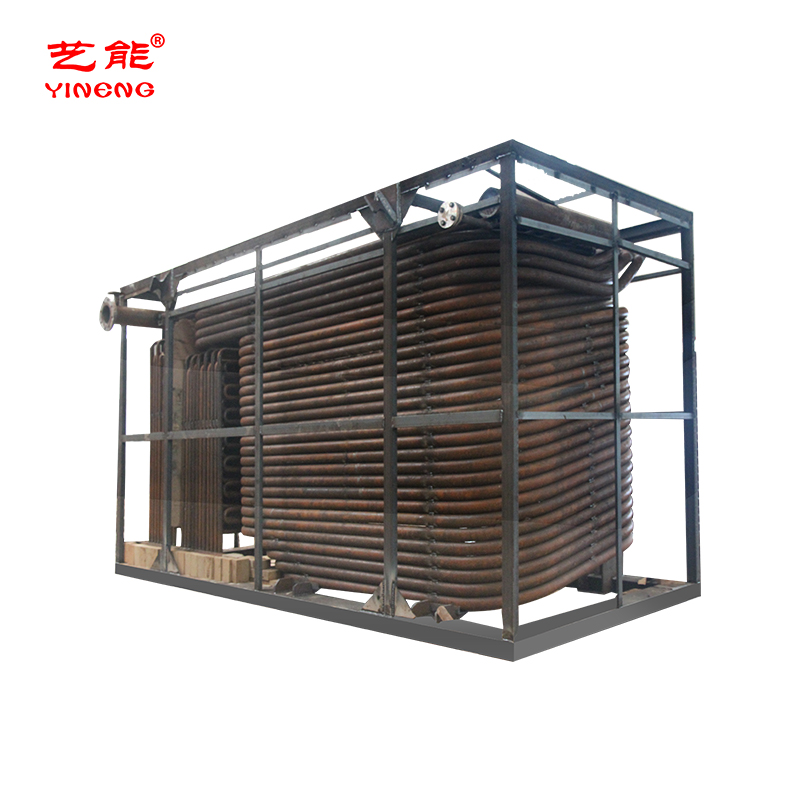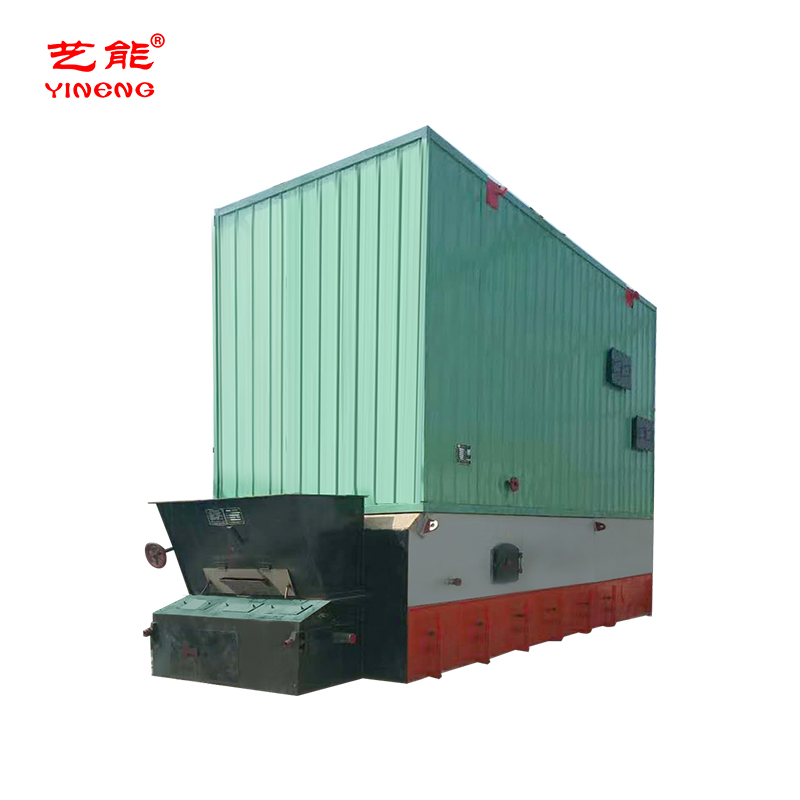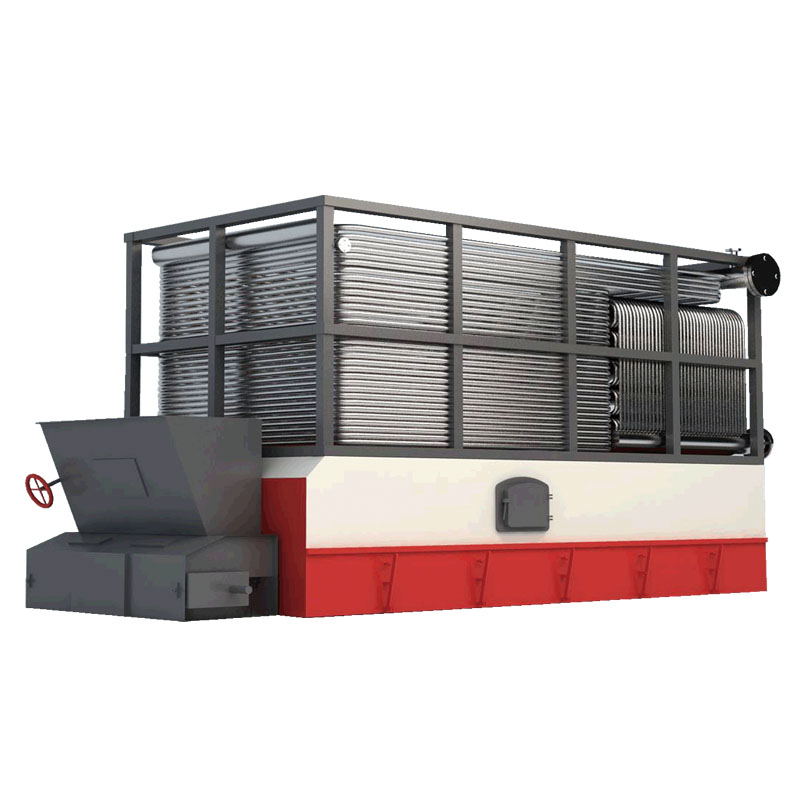Electric Steam Boiler Manufacturers - High-Efficiency Industrial Solutions
The Evolution of Industrial Heating: A Focus on Electric Steam Boilers
In the rapidly evolving landscape of industrial process heating, the demand for cleaner, more efficient, and precisely controllable energy sources has never been more critical. Traditional methods often involving a dandang wap gas untuk dijual or even a dandang stim kayu are increasingly being supplemented or replaced by advanced electric solutions. This shift is driving innovation among pengeluar dandang stim elektrik, who are at the forefront of providing sustainable and high-performance heating solutions for a myriad of industries. The push towards decarbonization and enhanced operational efficiency mandates a closer look at the technical capabilities, application versatility, and inherent advantages offered by these modern systems.
The global industrial steam boiler market is projected to reach approximately USD 18.5 billion by 2028, with electric boilers representing a significant growth segment due to their environmental benefits and operational flexibility (Source: Mordor Intelligence, 2023). Industries are prioritizing solutions that not only meet their thermal demands but also align with stringent environmental regulations and corporate sustainability goals. This article delves into the intricate world of electric steam boilers, exploring their manufacturing processes, technical specifications, diverse applications, and the critical factors that decision-makers consider when selecting a reputable vendor.
Precision Engineering: The Manufacturing Process of Electric Steam Boilers
The creation of a high-quality electric steam boiler is a testament to advanced engineering and meticulous quality control. Reputable pengeluar dandang stim elektrik adhere to rigorous standards throughout the entire production cycle to ensure safety, efficiency, and longevity. The process typically involves several critical stages, each contributing to the boiler's robust performance:
1. Material Selection & Preparation
The foundation of any durable boiler begins with superior materials. High-grade carbon steel and alloy steels (e.g., SA-516 Grade 70 for pressure vessels, inconel for heating elements) are selected for their excellent mechanical properties, corrosion resistance, and ability to withstand high temperatures and pressures. All materials undergo strict incoming inspection to verify chemical composition and mechanical strength according to ASTM or EN standards. Cutting, bending, and forming processes are performed with high-precision CNC machinery to ensure exact dimensions for subsequent fabrication steps.
2. Pressure Vessel Fabrication
This stage involves the intricate process of welding the various sections of the pressure vessel. Advanced welding techniques, including submerged arc welding (SAW) and gas tungsten arc welding (GTAW), are employed by certified welders. Post-weld heat treatment (PWHT) is often performed to relieve residual stresses, enhancing the vessel's integrity and service life. All welds are subjected to non-destructive testing (NDT), such as ultrasonic testing (UT), radiographic testing (RT), and magnetic particle inspection (MPI), in compliance with ASME Boiler and Pressure Vessel Code (BPVC) standards.
3. Component Integration & Assembly
Once the pressure vessel is complete, critical components like heating elements (often incoloy sheathed for enhanced durability), control systems, safety valves, water level sensors, and the dandang wap penukar haba (if applicable for feed water preheating) are precisely integrated. This includes the wiring of the electrical control panel, which houses the PLC (Programmable Logic Controller) for automated operation, and the installation of the termostat untuk dandang stim to ensure accurate temperature regulation.
4. Testing & Certification
Every electric steam boiler undergoes rigorous testing before leaving the factory. This includes hydrostatic testing to verify the pressure vessel's integrity, electrical system testing, functional testing of controls and safety interlocks, and efficiency performance tests. Adherence to international standards such as ISO 9001 for quality management, CE marking for European markets, and local regulatory requirements (e.g., ANSI, UL) is paramount. A typical electric boiler is designed for a service life exceeding 20-30 years with proper maintenance, serving target industries like petrochemicals, food & beverage, pharmaceuticals, and water treatment plants, where energy saving and corrosion resistance are key advantages.

Technical Specifications and Unmatched Advantages
The modern dandang stim perindustrian sector benefits significantly from the inherent technical advantages of electric boilers. Unlike fuel-fired systems, electric boilers convert nearly 100% of electrical energy directly into heat, resulting in exceptionally high operating efficiencies. This makes them a superior choice for applications demanding precise temperature control and minimal environmental impact.
Typical Electric Steam Boiler Specifications
| Parameter | Unit/Value Range | Typical Application |
|---|---|---|
| Steam Output Capacity | 50 kg/hr to 5,000 kg/hr | Process heating, sterilization, humidification |
| Operating Pressure | 0.7 MPa to 1.6 MPa (100-232 PSI) | Diverse industrial processes requiring varying pressures |
| Operating Temperature | Up to 190°C (374°F) | High-temperature process requirements |
| Electrical Power Input | 20 kW to 4 MW (3-phase) | Scalable to small and large industrial needs |
| Kecekapan | 99% or higher | Energy cost savings, reduced heat loss |
| Footprint | Compact, varies by capacity | Space-constrained installations |
| Emission Profile | Zero direct emissions | Environmental compliance, green initiatives |
Key Technical Advantages:
- High Efficiency and Rapid Response: Electric boilers offer immediate steam generation with virtually no standby losses, unlike fuel-fired systems. Their quick ramp-up times mean energy is consumed only when needed, maximizing operational efficiency (often >99%).
- Precise Control: Equipped with sophisticated PLCs and accurate termostat untuk dandang stim systems, electric boilers maintain extremely tight control over steam pressure and temperature, crucial for sensitive processes.
- Environmental Friendliness: With zero direct greenhouse gas emissions at the point of use, electric boilers contribute significantly to reducing carbon footprint, especially when powered by renewable electricity sources.
- Enhanced Safety: The absence of combustion processes eliminates risks associated with fuel storage, flame propagation, and exhaust gases. Modern electric boilers incorporate multiple layers of safety interlocks and alarms.
- Reduced Maintenance: Fewer moving parts, no combustion by-products (soot, ash), and minimal exhaust system requirements translate to lower maintenance demands and extended component life.
- Compact Footprint: Electric boilers are generally more compact than their fuel-fired counterparts of equivalent capacity, making them ideal for installations with limited space.
For certain high-pressure, high-capacity applications, advanced designs like the dandang wap tiub air principle can be adapted to electric heating, allowing for faster steam generation and higher pressures, though most industrial electric boilers utilize fire-tube or electrode designs for simplicity and cost-effectiveness.
Versatile Application Scenarios and Impactful Case Studies
The adaptability of electric steam boilers makes them invaluable across a broad spectrum of industrial applications where clean, reliable, and consistent steam is paramount. Leading pengeluar dandang stim elektrik tailor their solutions to meet the specific demands of diverse sectors, ensuring optimal performance and compliance.
Primary Application Sectors:
- Food & Beverage: For sterilization of equipment, cooking, pasteurization, and cleaning-in-place (CIP) processes, where pure, uncontaminated steam is non-negotiable.
- Pharmaceutical & Healthcare: Essential for autoclaves, humidifiers, sterile manufacturing environments, and the production of active pharmaceutical ingredients (APIs), demanding high-purity steam.
- Chemical & Petrochemical: Utilized for process heating, reactor jacket heating, distillation, and solvent recovery, often in hazardous areas where open flames are prohibited.
- Textile & Apparel: For dyeing, pressing, and finishing processes, requiring consistent steam quality and pressure.
- Commercial & Institutional: Humidification for HVAC systems, laundry operations, and kitchens in hotels, hospitals, and office buildings.
- Data Centers: For humidification systems that maintain precise environmental conditions to protect sensitive electronic equipment.
Application Case Studies:
Case Study 1: Pharmaceutical Plant Sterilization
A leading pharmaceutical facility in Europe replaced its aging weil mclain cth 40 steam boiler (converted from oil to natural gas) with a 1.5 MW electric steam boiler system. The plant required ultra-pure steam for its sterilization autoclaves and cleanroom humidification, which was critical for FDA compliance. The electric boiler delivered consistent, high-purity steam without the risk of combustion by-products contaminating the process. Customer feedback highlighted a 15% reduction in operational costs due to higher efficiency and lower maintenance, coupled with zero direct emissions, significantly improving their environmental profile. The precise control offered by the electric system also optimized sterilization cycles, ensuring product integrity and safety.
Case Study 2: Dairy Processing Facility
A major dairy producer upgraded its boiler system to an electric solution, aiming to reduce reliance on fossil fuels and streamline their CIP (Clean-in-Place) operations. By installing a 2 MW electric steam boiler, they achieved immediate and on-demand steam for their sanitization cycles, drastically reducing warm-up times compared to their previous fuel-fired boiler. The cleanliness of the electric steam eliminated potential cross-contamination risks, a critical factor in food processing. The plant reported a 10% increase in production throughput due to faster sanitization and a significant reduction in overall energy consumption when factoring in peak demand and standby losses. This solution exemplifies the energy saving and corrosion resistance benefits in a demanding environment.

Vendor Comparison and Customized Solutions
Selecting the right electric steam boiler is a strategic decision that impacts operational efficiency, compliance, and long-term costs. The market for pengeluar dandang stim elektrik is diverse, and a thorough comparison is essential. Beyond standard product offerings, the ability to provide customized solutions often distinguishes a superior partner.
Key Considerations for Vendor Selection:
- Certifications and Compliance: Ensure the manufacturer holds relevant international certifications (e.g., ASME, CE, PED) and adheres to local codes.
- Technological Innovation: Look for manufacturers investing in R&D, offering advanced control systems, remote monitoring capabilities, and energy management features.
- Experience & Reputation: Partner with vendors who have a proven track record, extensive years of service, and positive client testimonials in your specific industry.
- After-Sales Support & Service Network: A robust support system for installation, commissioning, maintenance, and spare parts is crucial for minimizing downtime.
- Customization Capabilities: The ability to design and manufacture boilers tailored to unique pressure, temperature, space, or integration requirements.
Product Comparison Table: Electric Steam Boiler Features
| Feature | Manufacturer A (Premium) | Manufacturer B (Mid-Range) | Manufacturer C (Economy) |
|---|---|---|---|
| Efficiency (Operating) | ≥99.5% | ≥99% | ≥98.5% |
| Control System | Advanced PLC with HMI, remote monitoring, IoT integration | Standard PLC with digital display, basic remote options | Analog controls with basic safety features |
| Heating Element Material | Incoloy 800/840 | Stainless Steel 316L | Stainless Steel 304 |
| Pressure Vessel Warranty | 5 Years | 3 Years | 1 Year |
| Lead Time (Standard Unit) | 8-10 Weeks | 10-12 Weeks | 12-16 Weeks |
| Customization Level | High (Pressure, Power, Footprint, Controls) | Moderate (Power, basic control adjustments) | Limited (Standard models only) |
The Power of Customization:
For industrial clients, off-the-shelf solutions are often insufficient. Many pengeluar dandang stim elektrik offer bespoke engineering to meet unique operational demands. This includes:
- Specific Pressure/Temperature Requirements: Designing boilers for non-standard operating ranges.
- Footprint Constraints: Compact or modular designs to fit into confined spaces.
- Integration with Existing Systems: Ensuring seamless compatibility with legacy DCS (Distributed Control Systems) or specific SCADA platforms, potentially involving adapting or upgrading components like a weil mclain cth 40 steam boiler control logic.
- Special Material Construction: For corrosive environments or ultra-high purity applications, using exotic alloys for wetted parts.
- Skid-Mounted Solutions: Pre-piped and pre-wired systems for ease of installation and faster commissioning.
These customized approaches ensure that the boiler perfectly aligns with the client's process, maximizing efficiency and return on investment.
Ensuring Trustworthiness: FAQs, Lead Times, Warranty, and Support
Trustworthiness is a cornerstone for any B2B transaction, particularly for critical equipment like industrial boilers. Leading pengeluar dandang stim elektrik prioritize transparency in their operations, from initial consultation through to after-sales support.
Frequently Asked Questions (FAQs)
Q1: What are the primary safety features of an electric steam boiler?
A: Electric boilers typically include multiple safety interlocks: automatic low water cut-off, high-pressure limit switches, over-temperature protection, safety relief valves, and electrical fault detection. These systems work in concert to prevent hazardous conditions.
Q2: How does the operational cost of an electric boiler compare to a gas or oil boiler?
A: While electricity costs per BTU can be higher than natural gas in some regions, electric boilers boast near 100% efficiency, no flue losses, minimal maintenance, and often lower installation costs (no chimney/fuel lines). When factoring in carbon taxes or renewable energy tariffs, the total cost of ownership can be highly competitive, especially for smaller steam loads or intermittent use. They also avoid fuel price volatility associated with a dandang wap gas untuk dijual or oil units.
Q3: What are the typical lead times for custom electric boiler systems?
A: Standard electric boilers generally have lead times of 8-12 weeks. For highly customized solutions, involving unique pressure vessel designs, specific material requirements, or advanced control system integration, lead times can extend to 16-24 weeks, depending on complexity and material availability. Specific project timelines are always provided upon detailed engineering review.
Q4: What kind of warranty and after-sales support can I expect?
A: Most reputable manufacturers offer a standard warranty of 1-2 years on electrical components and controls, and 3-5 years on the pressure vessel. Comprehensive after-sales support typically includes technical phone support, on-site commissioning services, preventive maintenance contracts, and readily available spare parts to ensure minimal downtime.
Lead Time & Fulfillment Details:
Our commitment to efficient project delivery begins at the quotation stage. Upon order confirmation, clients receive a detailed project schedule outlining engineering, fabrication, testing, and shipping milestones. We leverage robust supply chain management and efficient manufacturing practices to meet agreed-upon timelines. For international orders, we assist with logistics, customs documentation, and offer crating/packaging solutions tailored for safe transit.
Warranty Commitments:
We stand behind the quality of our products with comprehensive warranty programs. Our pressure vessels typically carry a 5-year limited warranty, reflecting our confidence in material selection and fabrication integrity. Electrical components and control systems are covered by a 2-year warranty from the date of commissioning. Full warranty terms and conditions are provided with every quotation, ensuring clarity and peace of mind for our customers.
Dedicated Customer Support:
Our relationship with clients extends far beyond the sale. We provide 24/7 technical support, offering troubleshooting assistance and expert guidance. Our network of certified field service technicians is available for on-site commissioning, preventive maintenance, and emergency repairs. Additionally, we maintain a comprehensive inventory of genuine spare parts to minimize lead times for replacements and ensure continuous operation of your industrial steam boiler systems.

Conclusion: The Future is Electric for Industrial Steam
The trajectory of industrial heating is undeniably pointing towards more sustainable and efficient solutions. Electric steam boiler manufacturers are not just adapting to this trend; they are driving it, offering advanced systems that provide unparalleled control, cleanliness, and operational savings. As industries globally strive to meet increasingly strict environmental regulations and achieve net-zero targets, the role of electric boilers becomes ever more pivotal. From pharmaceutical-grade steam to crucial process heating in manufacturing, the advantages in terms of efficiency, safety, and reduced environmental impact make them a compelling choice for any forward-thinking enterprise.
Investing in electric steam technology is an investment in the future—a commitment to operational excellence and environmental stewardship. The comprehensive support, customization options, and proven performance offered by leading manufacturers ensure that this transition is not only seamless but also profoundly beneficial for long-term industrial success.
References
- Mordor Intelligence. (2023). Industrial Steam Boiler Market - Growth, Trends, COVID-19 Impact, and Forecasts (2023 - 2028). Retrieved from Mordor Intelligence website.
- ASME Boiler and Pressure Vessel Code (BPVC), Section I: Rules for Construction of Power Boilers. (2021). American Society of Mechanical Engineers.
- International Organization for Standardization (ISO). (2015). ISO 9001:2015 Quality management systems – Requirements.
- European Committee for Standardization (CEN). (2014). EN 12953-1: Shell boilers - Part 1: General.
- U.S. Department of Energy. (2017). Steam Boilers: Technologies, Energy Use and Opportunities for Industrial Competitiveness. Advanced Manufacturing Office.
-
Electric Steam Boiler Manufacturers - High-Efficiency Industrial SolutionsBeritaAug.30,2025
-
Electric Steam Boiler Manufacturers: Industrial & Efficient SolutionsBeritaAug.29,2025
-
Electric Steam Boiler Manufacturers | Efficient Industrial SolutionsBeritaAug.28,2025
-
Wood Steam Boiler for Sale: Maintenance Best PracticesBeritaAug.23,2025
-
Gas Thermal Oil Heater Installation Costs AnalysisBeritaAug.23,2025
-
Heat Transfer Oil Systems Troubleshooting TipsBeritaAug.23,2025

